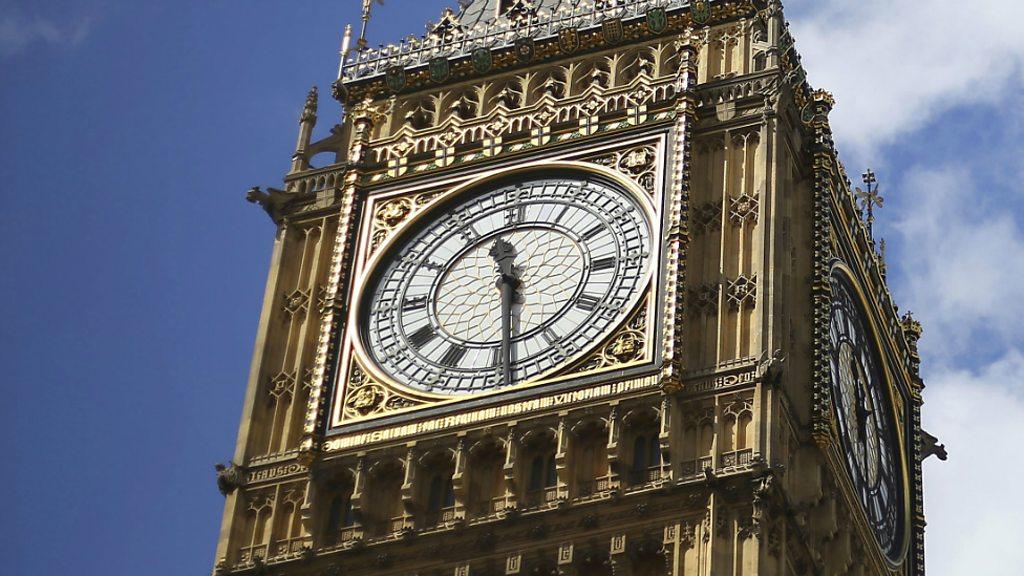Big Ben: London's iconic landmark turns 160 years old
- Published
Thursday marks the 160th anniversary of when Big Ben began striking the hour, on 11 July 1859.
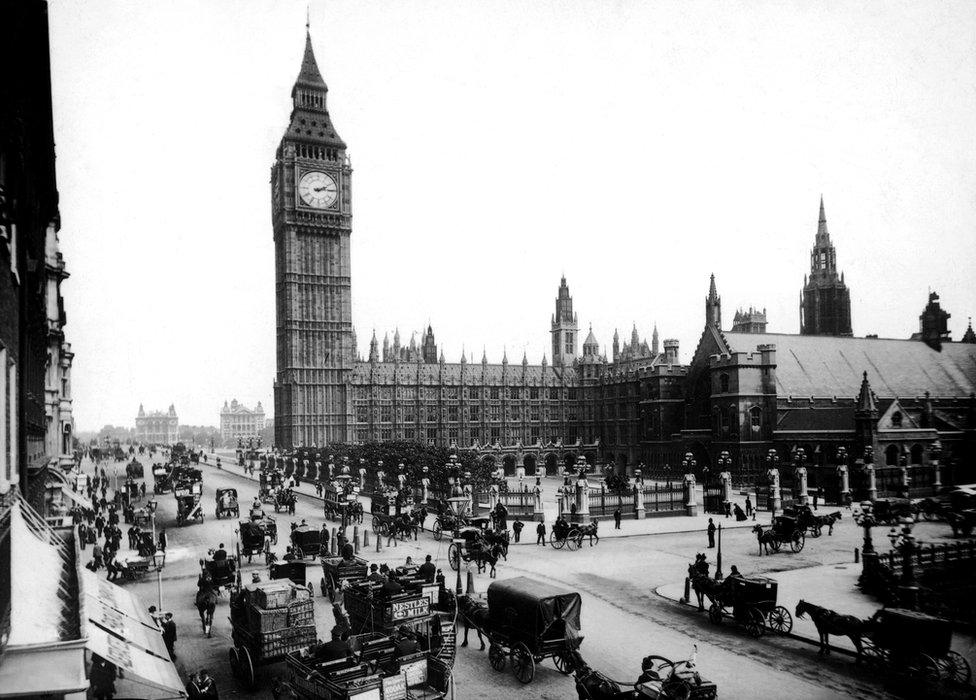
The Houses of Parliament and Big Ben seen from Parliament Square, around 1897
The Great Bell forms part of the Great Clock in the Elizabeth Tower - commonly known as Big Ben.
The building is the focal point of the Palace of Westminster, a Unesco World Heritage site and the meeting place of the House of Commons and the House of Lords.
Big Ben has been being undergoing restoration work since 2017, due for completion in 2021.
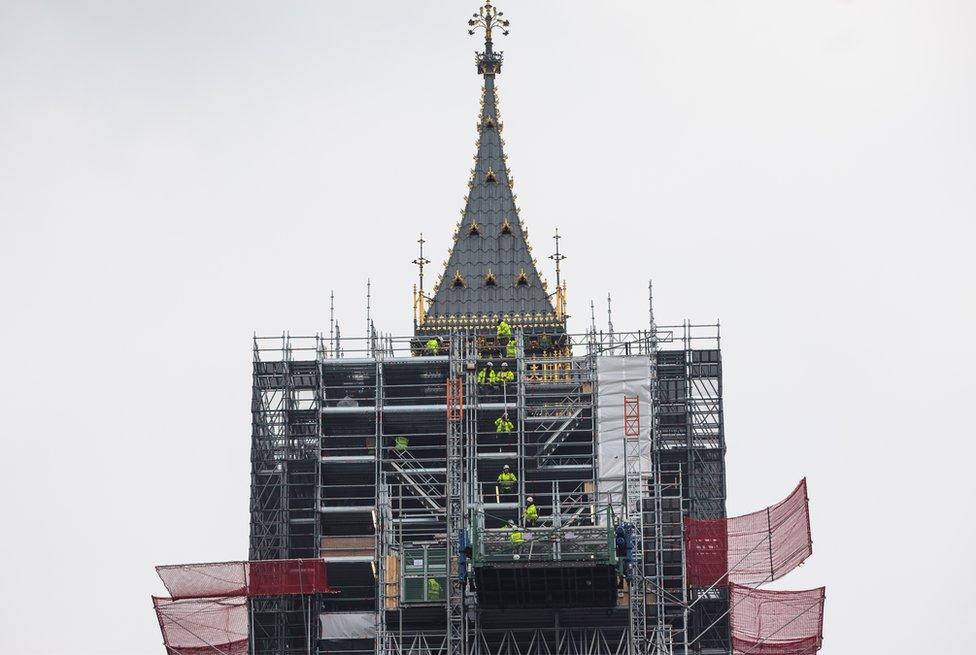
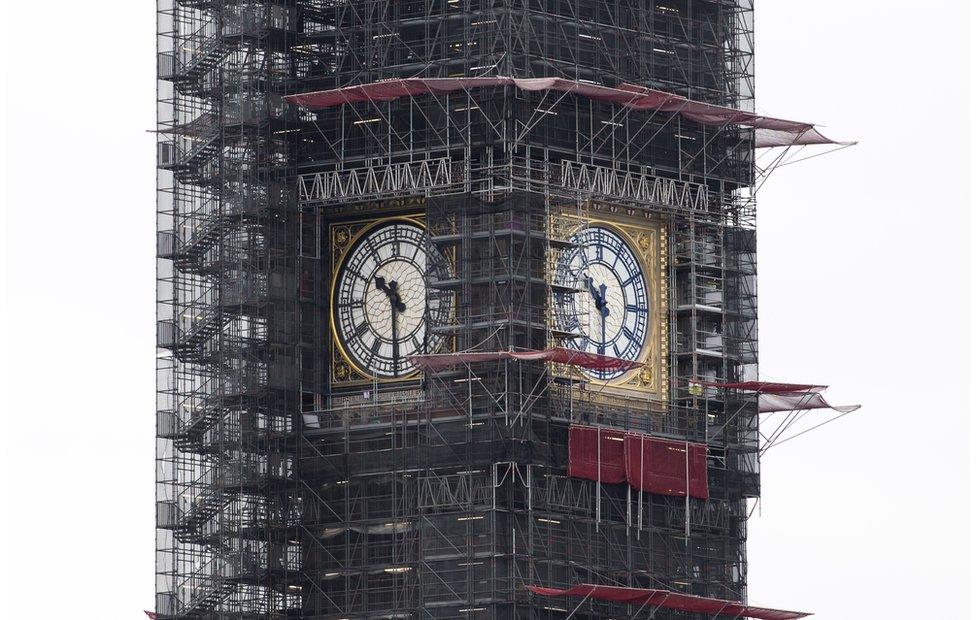
The conservation work has seen the bell remain in place, while the Great Clock has been dismantled, involving 11 tonnes of mechanism material.
"The Great Clock and its bell have become much loved representatives of our democracy - and the conservation works currently taking place will ensure that it continues to be so for generations to come," said Steve Jaggs, keeper of the Great Clock.
Old fashioned pennies on the pendulum help to keep the Great Clock accurate.
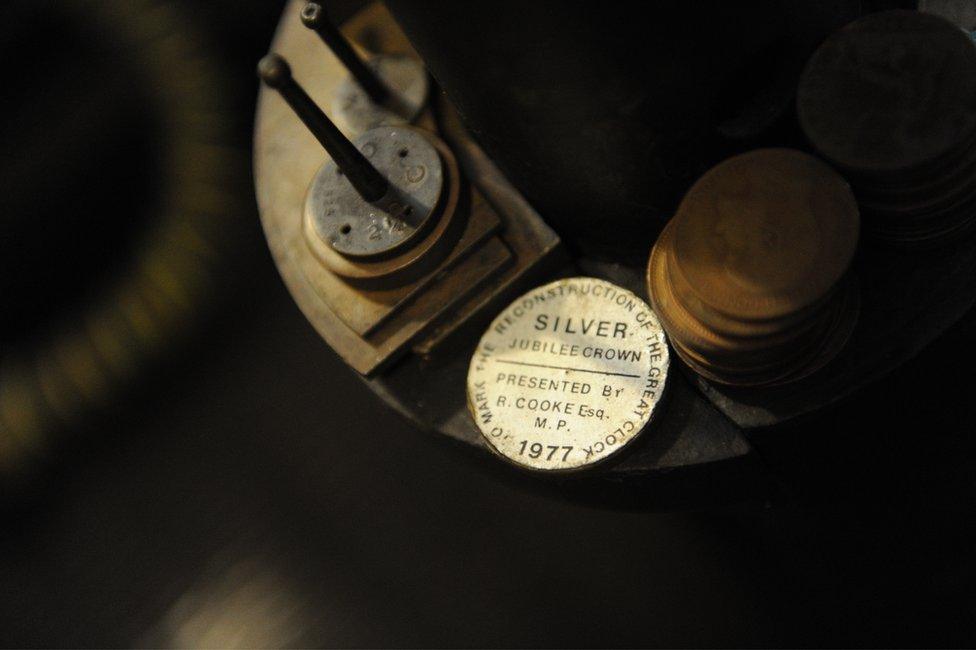
The clock faces are being restored, with the cast iron frames being cleaned and repainted.
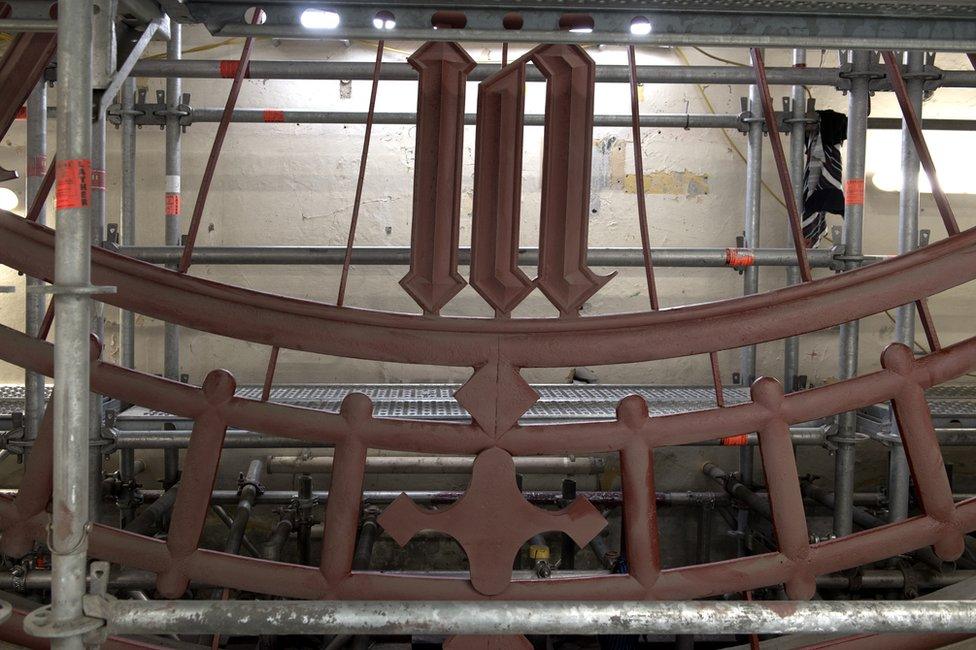
The 324 pieces of glass in each clock face are being swapped for mouth-blown and hand-cut replacements that are opal in colour, matching the originals.
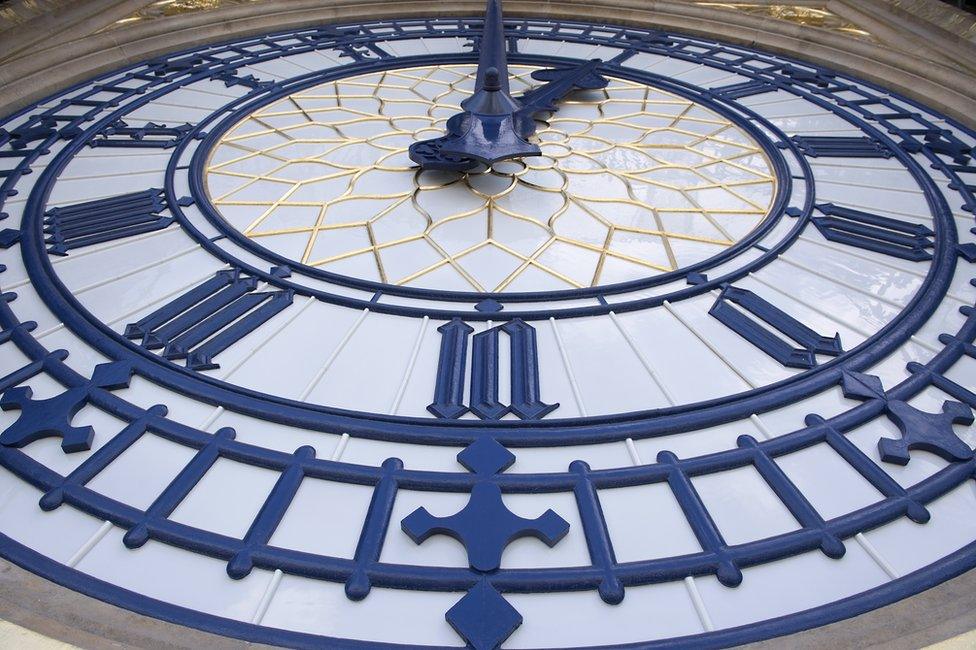
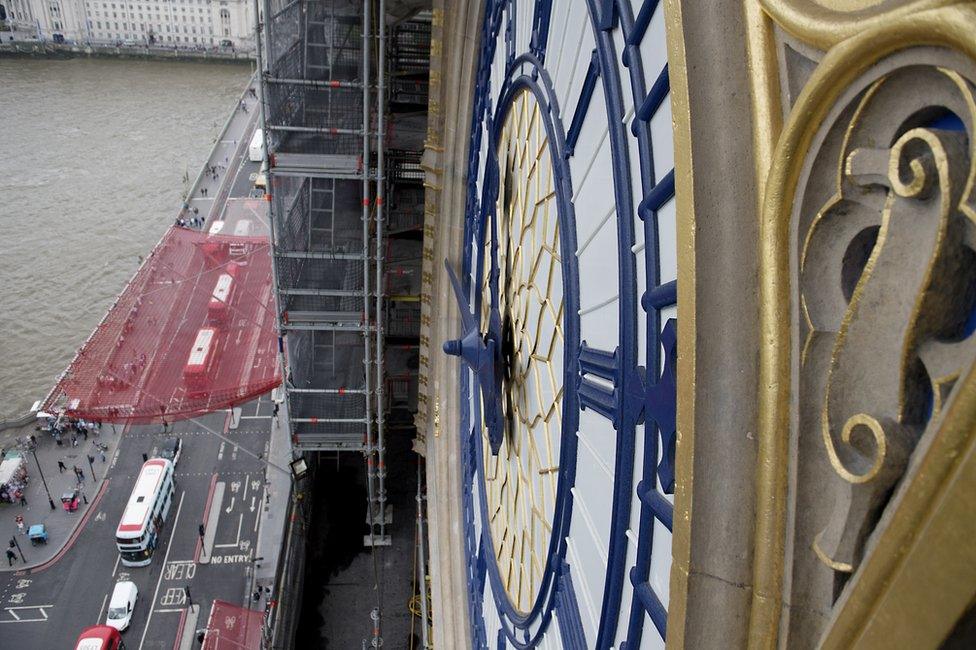
The design for the clock was decided in a competition, in 1846, won by barrister Edmund Beckett Denison.
Clockmaker Edward John Dent died before the work was finished. His stepson finished the clock in 1854 and it was installed in the tower in 1859.
The bell is thought to be named after Sir Benjamin Hall, the chief commissioner of works in the mid-19th Century.
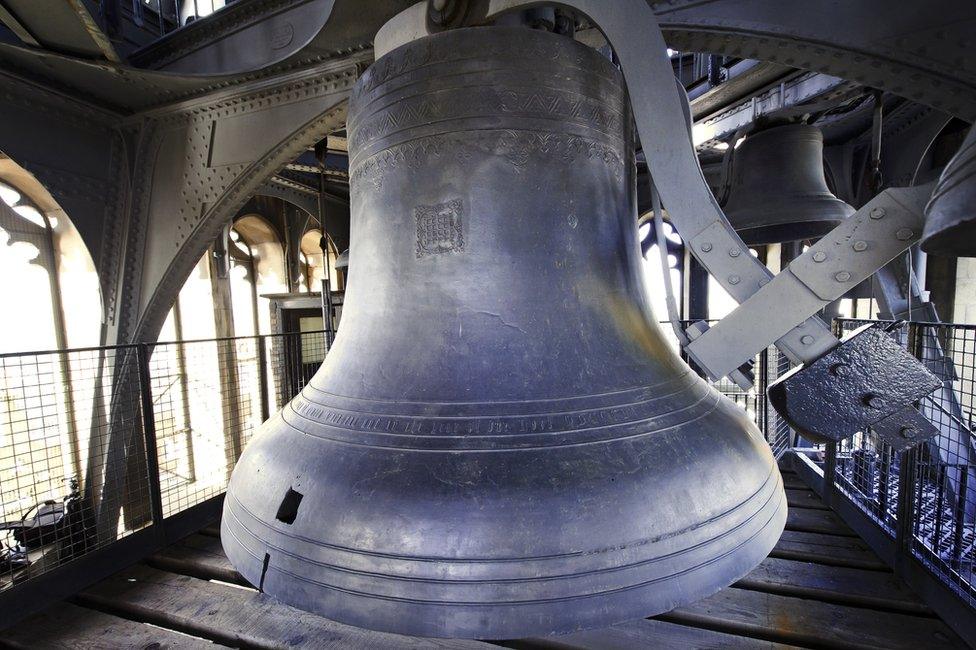
Stone masons have been repairing 700 pieces of stonework, including gargoyle-like grotesques, angels, symbolic creatures and lettering.
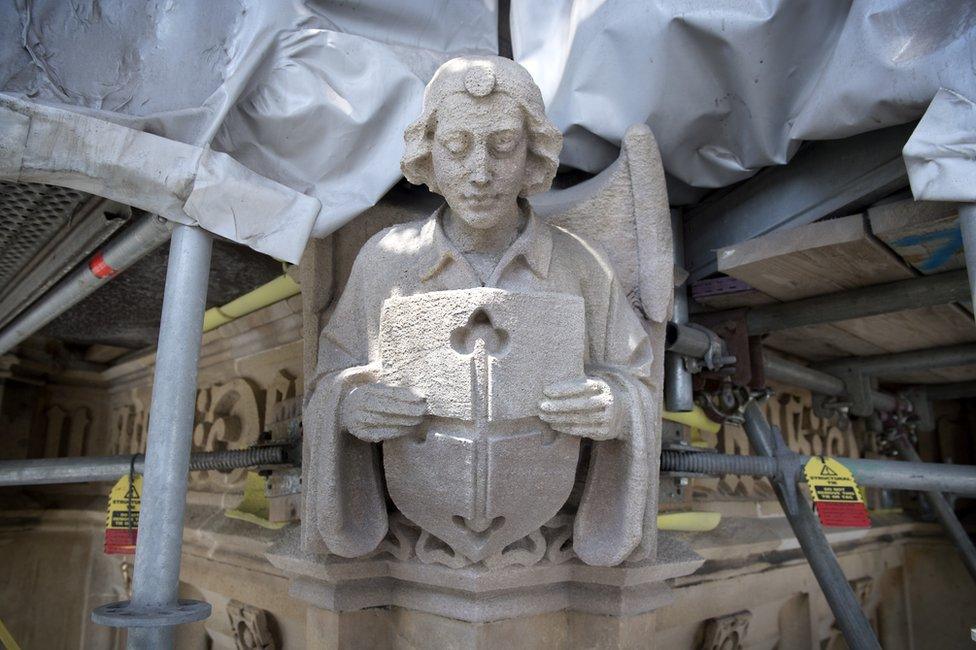
Cadeby stone from near Doncaster, Yorkshire, similar to the original, has been used for repairs.
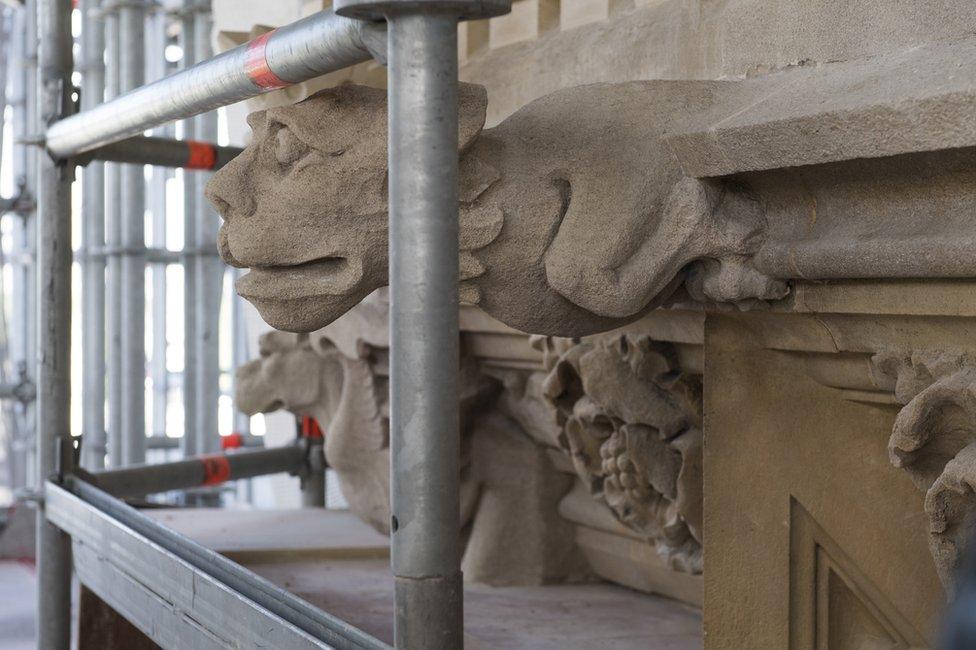
The cast-iron roof of the tower, made up of 3,433 pieces, has been removed, repaired and replaced.
Gilding has been applied by hand to a number of decorative elements, such as the carved writing around the clock dials.
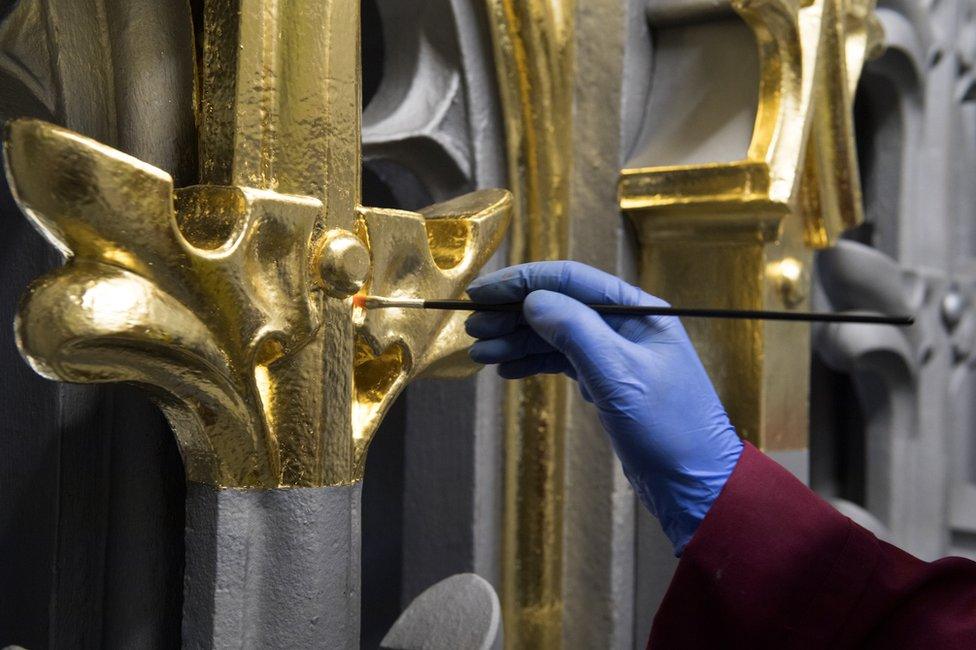
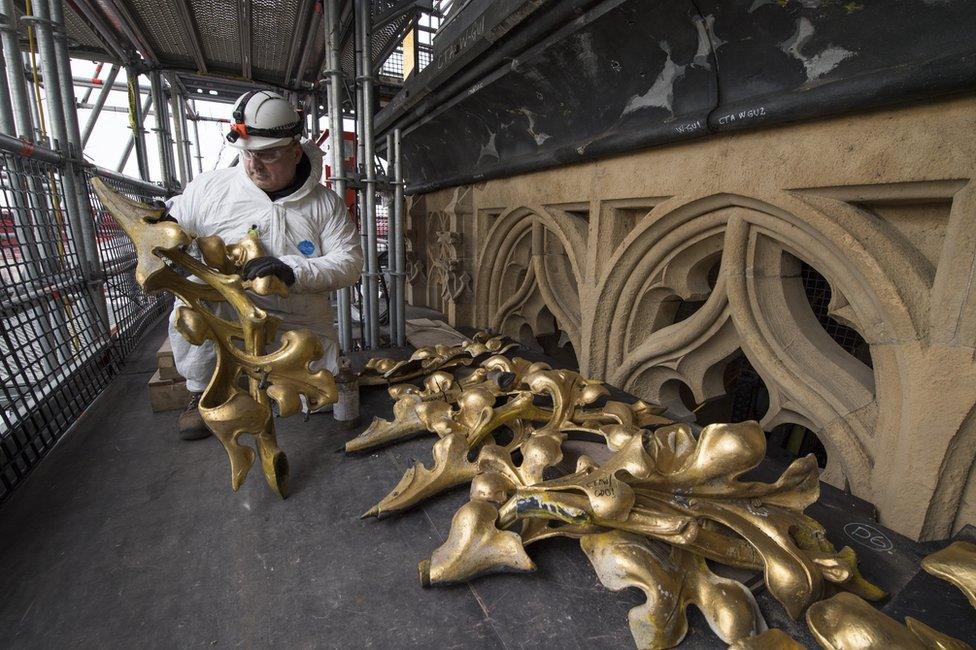
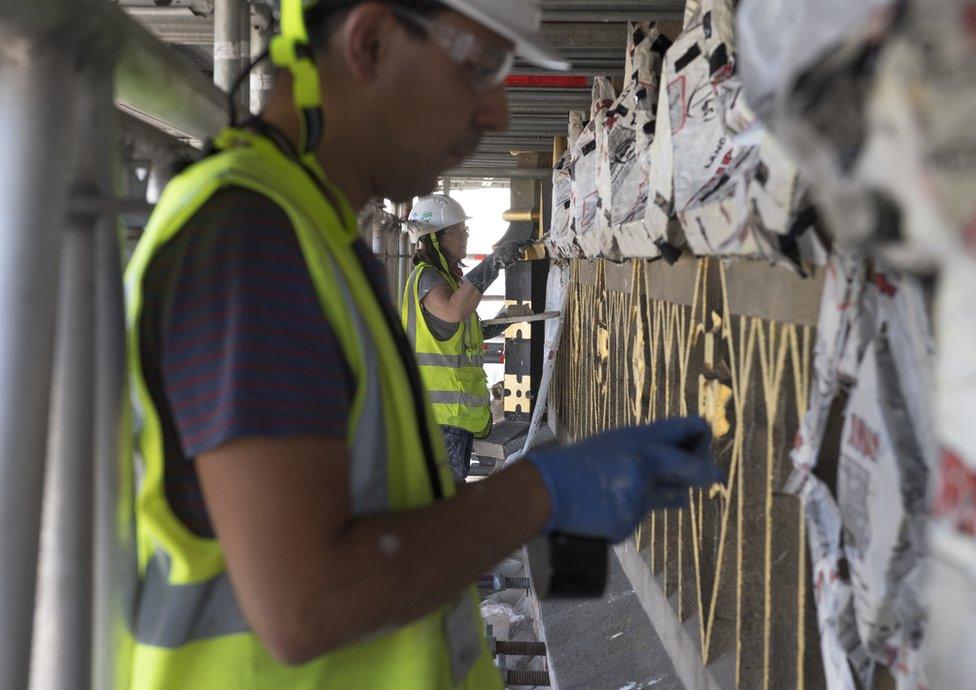
A time capsule was discovered hidden in the roof, placed there in the 1950s during repair work for bomb damage.
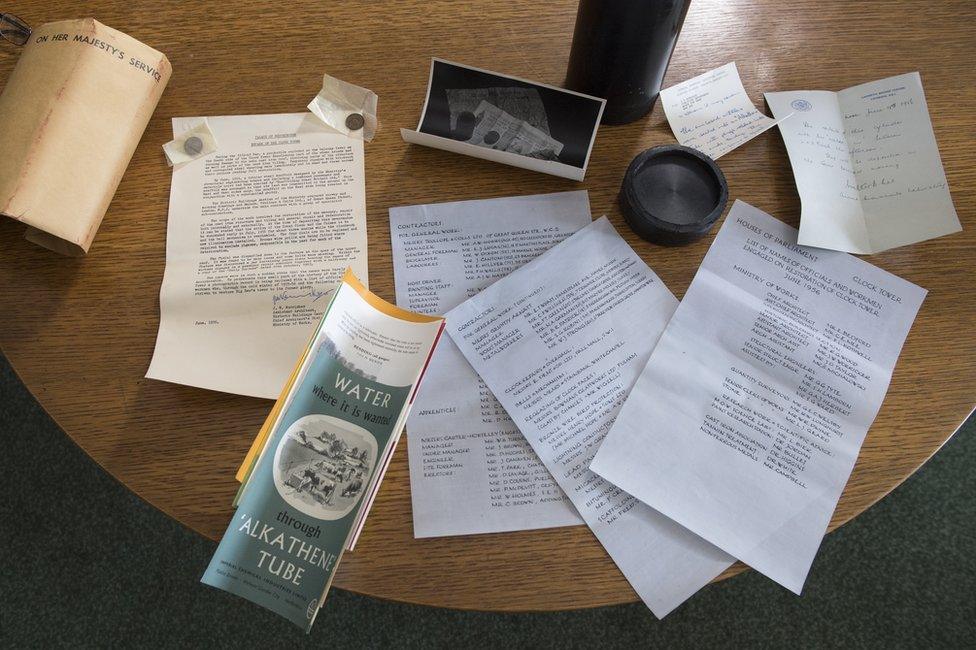
"Discovering the time capsule was a great moment in the project," said principal architect Adam Watrobski.
"It gave us a real sense of history and provided a tangible connection to those that have worked to preserve this beautiful landmark before us."
The current project team have now placed their own time capsule at the top of the tower, containing:
names of all the craftspeople and experts working on the restoration
a message for the future from pupils at a school in Lewisham
a copy of the day's Order of Business in the House of Commons
Photos are copyright.
- Published25 June 2018
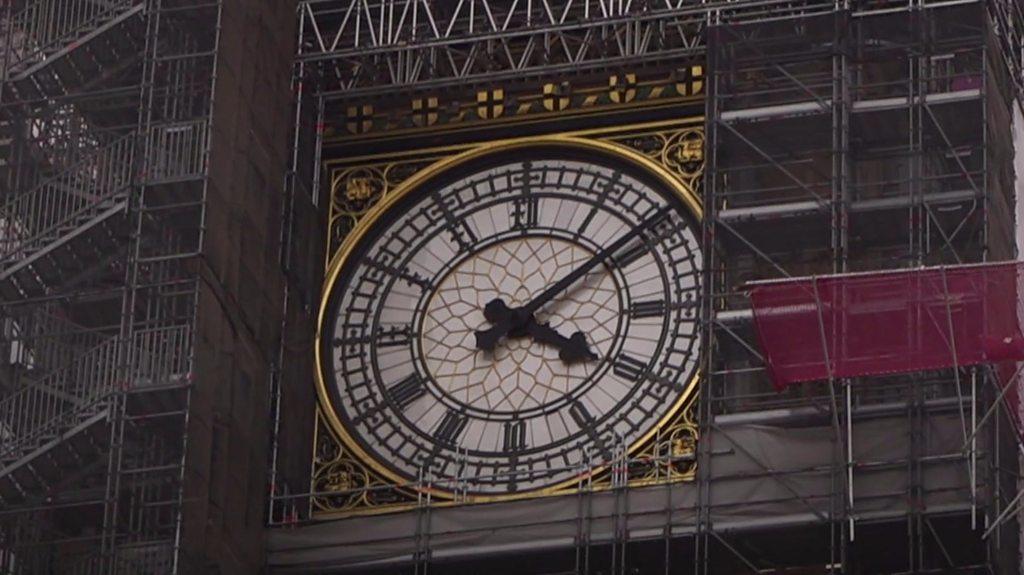
- Published26 April 2016
